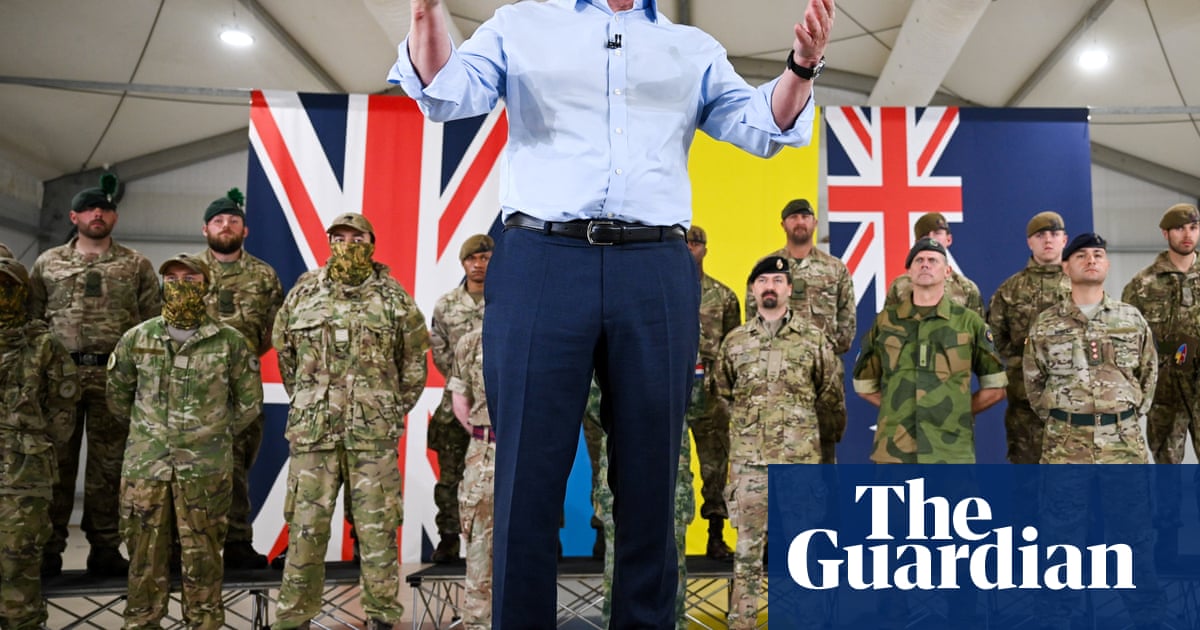Labour’s defence reviewis full of contradictions. It paints a picture of a more dangerous world, with Britain facing “multiple, direct threats” to its security, particularly from nuclear-armed states such as Russia and China, and warns that the west’s “long-held military advantage is being eroded”.
But when it comes to spending taxpayers’ money, the exercise is considerably more cautious. The reviewers, a team of three led by the former Nato secretary general George Robertson, accept the spending envelope given to them by the prime minister, Keir Starmer: a gradual lift in defence spending to 2.5% of GDP by 2027 and a looser promise to increase spending to 3% by the end of the next parliament.
Although the armed forces have,Laboursays, been “hollowed out” in the last decade and a half, the 140-page document argues that a transformation to a military able to fight a war will take 10 years. There is not yet the money to start increasing the size of the British army, for example, and its target level will only be increased by 3,000 to 76,000 in the next parliament – as funding allows.
Although, as Starmer argued, “every citizen of this country has a role to play” in national security, the biggest burden seems to be falling on the youngest. Labour wants to expand school cadet forces by 30% by 2030 (and eventually reach 250,000) suggesting it believes a long-term solution to the problems of army recruitment is through influencing teenagers.
In reality, there is likely to be no harm in gradualism. Britain is not under direct military threat and is not likely to be any time soon. The UK’s most likely contribution to future European security is to continue providing support to Kyiv, or to other countries on Nato’s eastern flank, which a newly aggressive Russia may choose to threaten – perhaps after agreeing to a ceasefire in Ukraine.
Strategic reviews often do a poor job of predicting the future. The previous one, Boris Johnson’s 2021 integrated review, failed to anticipate the return to a land war in Ukraine, and instead heralded a British tilt to the Indo-Pacific. The latest document emphasises the rise of state-based rivals, but if there was a sudden change in power at the Kremlin, the sense of increased threat could dissipate quickly.
The question is, what else is necessary for security in an unpredictable world? On the one hand, as the review acknowledges, the UK is “already under daily attack” in cyberspace, with 89 “nationally significant” hacker attacks counted in the year to September 2024, though beyond the creation of a cyber-command within the Ministry of Defence, there is no further response to a problem that remains acute.
But it is less clear that anxieties about Russian and Chinese nuclear stockpiles justify the UK investing unspecified sums in air-launched, so-called battlefield nuclear weapons. The review itself is vague about the proposal, just calling for the UK to explore “strengthening extended deterrence” with the US and Nato, though this would mean US B61-12 gravity bombs being stationed at RAF Lakenheath in Suffolk; weapons that would remain under US control unless a full-scale war broke out.
Sign up toFirst Edition
Our morning email breaks down the key stories of the day, telling you what’s happening and why it matters
after newsletter promotion
There is a balance then between investing prudently in security and spending heavily on vanity projects with only a limited practical purpose. Spending on nuclear weapons programmes is already sharply rising – and is now “over £100bn” over the next 10 years – although all the review acknowledges is that costs “of the [defence nuclear] enterprise are increasing”. A heightened sense of concern should not exempt key areas of defence spending from detailed scrutiny.
